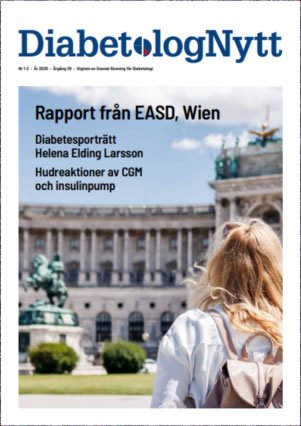MONDAY, Nov. 19 (HealthDay News) — A structured education intervention delivered through routine care correlates with lasting improvements in glycemic control and quality of life among adults with type 1 diabetes, according to study published online Nov. 8 in Diabetes Care.
Debbie Cooke, Ph.D., of the University of Surrey in Guildford, U.K., and associates conducted before and after evaluations among 262 adults with type 1 diabetes to examine the impact of the Dose Adjustment for Normal Eating structured education intervention on glycemic control and quality of life when delivered within routine U.K. health care.
The researchers found that, in a subgroup with suboptimal control, there were significant improvements in glycated hemoglobin from baseline (9.1 percent) to six (8.6 percent) and 12 months (8.8 percent). There was a significant improvement in quality of life at three months, which was maintained at six and 12 months.
”Longer term improved glycemic control and quality of life is achievable among adults with type 1 diabetes through delivery of structured education in routine care, albeit with smaller effect sizes than reported in trials,” the authors write.
Abstract
Structured Type 1 Diabetes Education Delivered Within Routine Care
Impact on Glycemic Control and Diabetes-Specific Quality of Life
Debbie Cooke, PHD1⇓,
Rod Bond, PHD2,
Julia Lawton, PHD3,
David Rankin, PHD3,
Simon Heller, MD4,
Marie Clark, PHD1,
Jane Speight, PHD5,6,7 and
for the U.K. NIHR DAFNE Study Group
Department of 1School of Health & Social Care, University of Surrey, Guildford, Surrey, U.K.; the
2School of Psychology, University of Sussex, Brighton, U.K.; the
Abstract
OBJECTIVE To determine whether improvements in glycemic control and diabetes-specific quality of life (QoL) scores reported in research studies for the type 1 diabetes structured education program Dose Adjustment for Normal Eating (DAFNE) are also found when the intervention is delivered within routine U.K. health care.
RESEARCH DESIGN AND METHODS Before and after evaluation of DAFNE to assess impact on glycemic control and QoL among 262 adults with type 1 diabetes.
RESULTS There were significant improvements in hemoglobin A1c from baseline to 6 and 12 months (from 9.1 to 8.6 and 8.8%, respectively) in a subgroup with suboptimal control. QoL was significantly improved by 3 months and maintained at both follow-up points.
CONCLUSIONS Longer term improved glycemic control and QoL is achievable among adults with type 1 diabetes through delivery of structured education in routine care, albeit with smaller effect sizes than reported in trials.
Nyhetsinfo
www red DiabetologNytt

